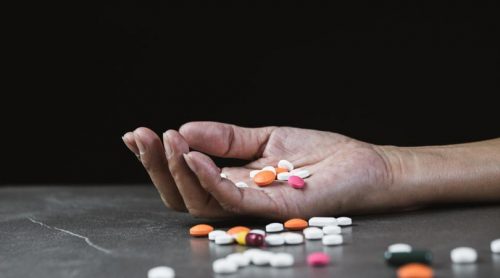
Source: longislandinterventions.com
Trying to quit addiction from street drugs, alcohol, prescription drugs – or any addiction – is quite a big accomplishment. There’s much to be proud of, but you still need to work moving forward. Detox is just the beginning of a long course wherein you will learn to deal with the cravings and prevent relapse.
Therapy is a primary approach in treating substance abuse for a lot of individuals. Family therapy, CBT, and other forms of therapy can assist addicts in helping them quit and stay sober. Psychotherapy can also manage other mental health problems that frequently cause substance abuse.
Why Therapy Is Important
Addiction is largely a physical reliance on alcohol or drugs. Even following detoxification, when the body is not hooked anymore, there is a higher likelihood of relapse. Specific social and psychological factors are strong triggers that may cause relapse. Examples include:
- Social groups, such as spending time with people who are using
- Stress, particularly spontaneous life challenges
- Signs from the environment, such as going into a certain neighborhood.
All these factors can lead to a powerful continuous craving to use again. Therapy helps you avoid cravings and practice managing whatever life brings you without alcohol or drugs. Numerous therapies can manage substance abuse, although no single approach has proven better than the other. Similarly, no single method is effective for everyone with drug addiction. The best treatment regimen will be customized to your individual and addiction needs.
Group Vs. Individual Therapy
Of course, any therapy for drug use is better than none at all, although group therapy is commonly preferred to individual therapy. Individual therapy is beneficial when you have bipolar disorder, depression, or another relevant mental health disorder that needs therapy and is not connected with your addiction. Group therapy, on the other hand, you are most likely to be tested and backed by people who are also in rehab with you.

Source: northjerseyrecovery.com
Residential Vs. Outpatient Therapy
Residential therapy isolates you from the things and places that triggered you to use alcohol or drugs. You will visit a particular facility for a timeframe of weeks and even months. While in the facility, you will develop new skills and practices for living a sober life. This method does work only briefly, as it has not proven to help one stay sober for a longer period than outpatient programs, which an addict joins for an hour or a few hours. Outpatient therapy programs are the typical setting for alcohol and drug abuse treatment.
Dialectical Behavior Therapy (DBT)
DBT involves change and acknowledgment. Initiated in the 1970s to manage individuals who had suicidal thoughts, DBT was implemented for other purposes, including alcohol or drug abuse. In dealing with substance abuse, the focus is on decreasing it, along with the behaviors that have led to it, and improving the healthy behaviors as well that helps the individual to avoid using again.
Cognitive Behavioral Therapy
CBT educates you on how to acknowledge thoughts, circumstances, and moods that intensify the drug cravings. Therapists teach you strategies on how to prevent these cravings. You will learn to substitute negative emotions and thoughts with positive ones to help you cope and stay sober.
The abilities you will develop can last forever, so CBT is truly a powerful treatment approach. However, not every therapist is trained to do CBT techniques.
Family And Couples Therapy
Addictions do not only impact your life but also your entire family. Fruitful therapies require robust connections with friends and family members. Different therapy approaches involve your partner and other members of the family. Below are three primary reasons to try couples or family therapy.
- They can start to recover from the damage that your addiction has produced in their lives.
- Members of the family can be a strong factor for transformation in your own life.
- Involving them can persuade you to continue staying with the therapy.
Research has found that family therapy leads to decreased relapse rates, more happiness and positivity in the family, and assists kids of addicted parents deal with their situation.

Source: psychiatrycentre.co.uk
Inspirational Interview
Here, the therapist aims to drive you and assist you in maintaining your abstinence from alcohol or drugs. If you are driven by your desire to return to work or love for your family, these matters might become the center of your treatment plan.
12-Step Programs
NA or Narcotics Anonymous is an internationally active group of community-based meetings for individuals recovering from drug or alcohol addiction. It was shaped after AA (Alcoholics Anonymous), so it is a 12-step approach with a clear process for attaining sobriety. It could also be a self-restraint program. By concept, NA is against the utilization of maintenance therapy. On the other hand, MA, or Methadone Anonymous, is a 12-step course that recognizes the importance of methadone and other drugs used in recovery from addiction. Other known recovery groups include Celebrate Recovery and SMART Recovery.